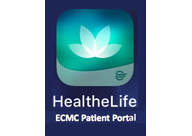Ellsworth County Medical Center Is Ready to Respond in the Event of Ebola
TOPEKA, Kan. - Ellsworth County Medical Center has been working with the Kansas Department of Health and Environment (KDHE) and the public health system in [city or county name] to quickly and effectively respond in the event of a case of Ebola in [city or county name]. Kansas has not had any confirmed cases of Ebola at this time.
Ebola virus disease is spread only through direct contact with bodily fluids of a person who is sick and showing symptoms. Symptoms of Ebola include: fever, headache, joint and muscle aches, weakness, diarrhea, vomiting, stomach pain and lack of appetite. Symptoms usually appear 8-10 days, but may appear up to 21 days after exposure to bodily fluids of a person showing symptoms of Ebola. Most cases related to this Ebola outbreak have been contracted in the West African countries of Guinea, Liberia and Sierra Leone.
Ellsworth County Medical Center is working with community partners regarding the need for standardized and effective infection control measures required to control and contain Ebola virus disease. If a patient had a suspected or confirmed case of Ebola, hospitals would be required to isolate the patient in a private room with a bathroom. The door to the room would need to be closed at all times and all visitors would need to be restricted and would need to follow infection control measures per hospital protocols. Healthcare workers would be required to protect themselves from Ebola by wearing protective clothing and equipment to prevent contact with bodily fluids.
Kansas has recommended additional guidance for healthcare workers who have been exposed to Ebola above and beyond the Centers for Disease Control and Prevention's guidelines. Kansas requires any healthcare worker who has been exposed to Ebola to be excluded from providing direct patient care for a 21 day period following the last exposure. KDHE has also recommended and provided resources for hospitals and healthcare workers, including EMS, to re-train on how to properly put on and take off protective equipment.
If someone is diagnosed with Ebola, an investigation would immediately occur to identify people who may have come in contact with the Ebola patient while they were showing symptoms. Those people identified would be monitored for signs of Ebola, including fever.
For additional information about Ebola visit www.cdc.gov/ebola or www.kdheks.gov/ebola.












